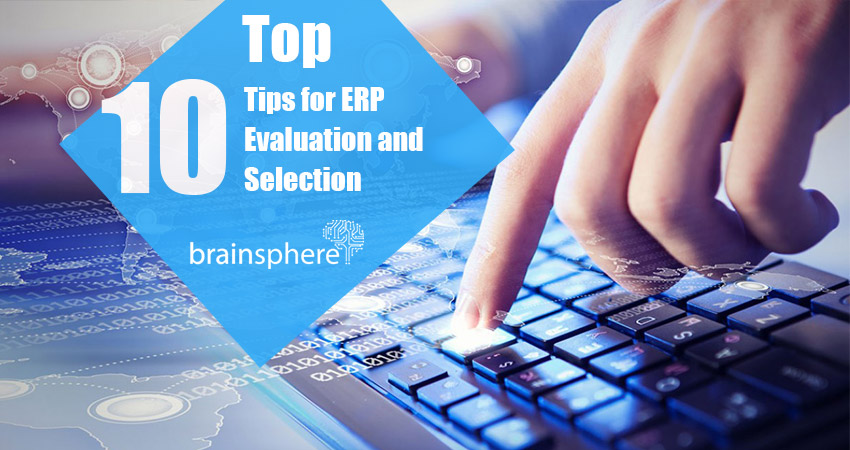Implementing an ERP system is an expensive process not just in term of cost of the software (license and hardware) but in terms of time resources. And most of the times organizations are overwhelmed by vendors promises. Organization must analyse and evaluate on their requirement sand should be able to find out what their needs that are not there in an ERP. Here are Ten tips on how to choose an ERP software solution and successfully deploy it.
1. Make a clear list of requirements before you start looking at vendors
Begin with a clear definition of the scope of your project. Focus on specific business processes and system requirements. The more specific you can be with your requirements, the more detailed your vendors can be in their proposals. To gather the requirements, make sure you communicate and collect input from end-users, IT and Senior Management.
2. Don’t forget mobile users
Smartphones can be used for almost everything that PC does, and accessing ERP systems from desktops only is no longer an optionChoose an ERP solution that allows users to be productive on smartphones and tablets.
3. Carefully evaluate your options before selecting your ERP system
Poorly run and ill-defined evaluation projects can lead to poor implementations.While evaluating ERP there should be participation from key stakeholders and top Management.So, considering all the available optionis important in ERP selection. If the ERP implementation is getting delayed that will also delay the go live date.
4. Try to get 100% Support from Top-level management.
Companies that have problem [with ERP] are the ones that lack upper Management level support/involvement. All the decisions regarding ERP software solution should be taken with the involvement of top level management.
5. Get References
First and foremost, when Searching for an ERP solution provider, ask the vendor for at least five references.Then ask the customers what went right, what went wrong and what they might have done differently.If a vendor can’t provide at least three verifiable, satisfied customers, they may not have the experience you need.
6.Think before you customize
Consider the amount of customization required to configure and implement. Highly customized systems will be higher in cost, not only in the initial stage but when upgrading in different time. So, if your requirement requires customization select an ERP solution that is highly customizable.
If a business function believes they have a case for a customization, make sure they prove it. And the cost of the customization is not only developing for initial implementation, but providing long-term support of the custom code and treating any customization as exceptions every time you upgrade your software.
7.Evaluate after sales support
After sales support is one important think that organization should evaluate while selecting a vendor, especially in case of software vendors companies should know that whether they have a support team locally available to give support on any issue after implementation.
8.Posiblilty for integration
Is It Possible to integrate ERP software with your existing software? This is one think origination should consider. If your currently solution is not a global solution there is no need of integration.
9.Technology and future scalability
Technology is changing time to time.so it is important to know the ERP system that you are selecting is based on a modern technology.
10.Training on the ERP system
Learning a new system will take time for everyone, so the project team must take proactive measures to reduce the burden on employees. It is important to Identify department-specific needs, allowing for enough time to develop and deliver training programs.
Brainsphere IT Solutions provides the best ERP Software & Consultation in UAE. Our proven solution and approach helped global companies. Reach us now to find the answers for your ERP related questions.

